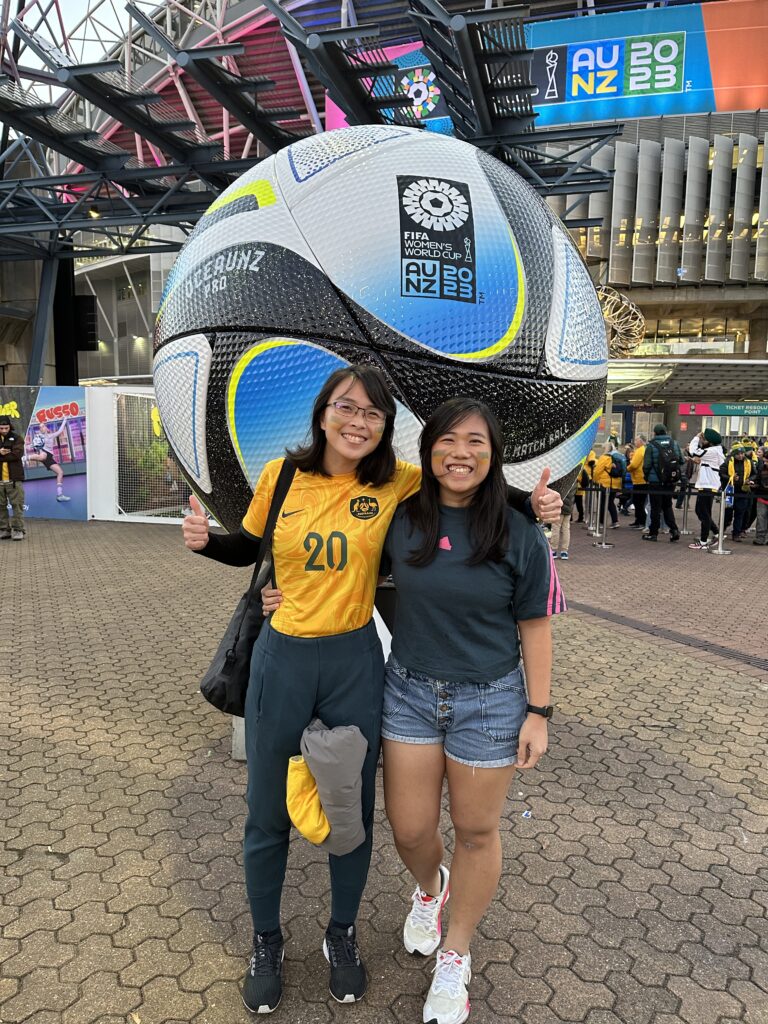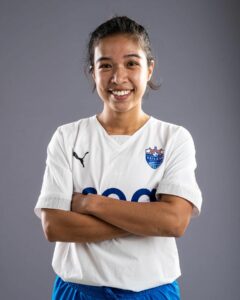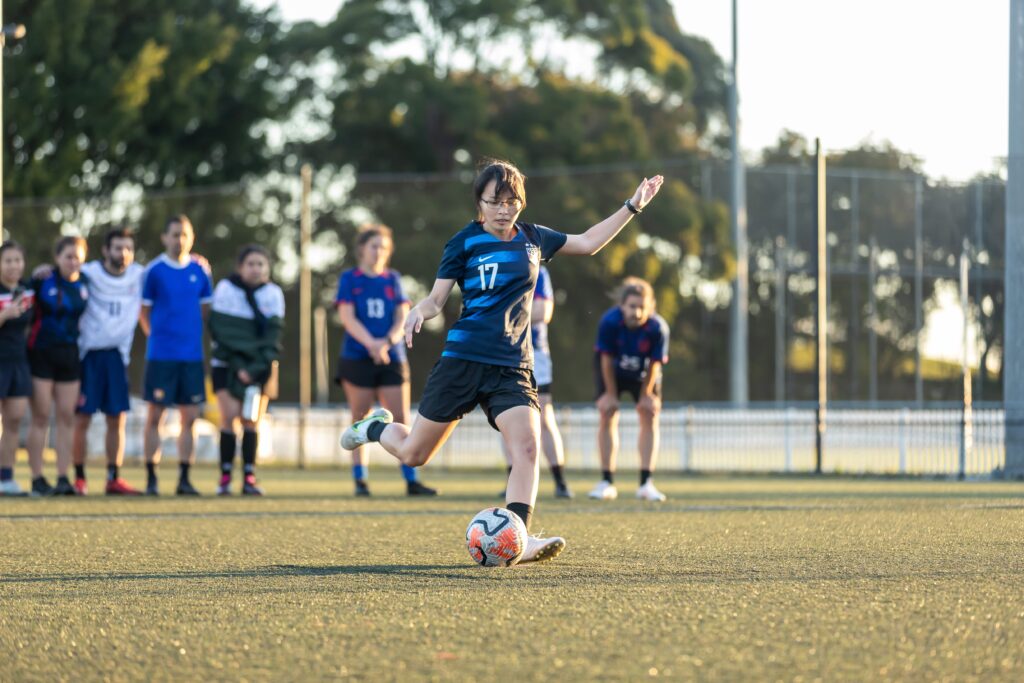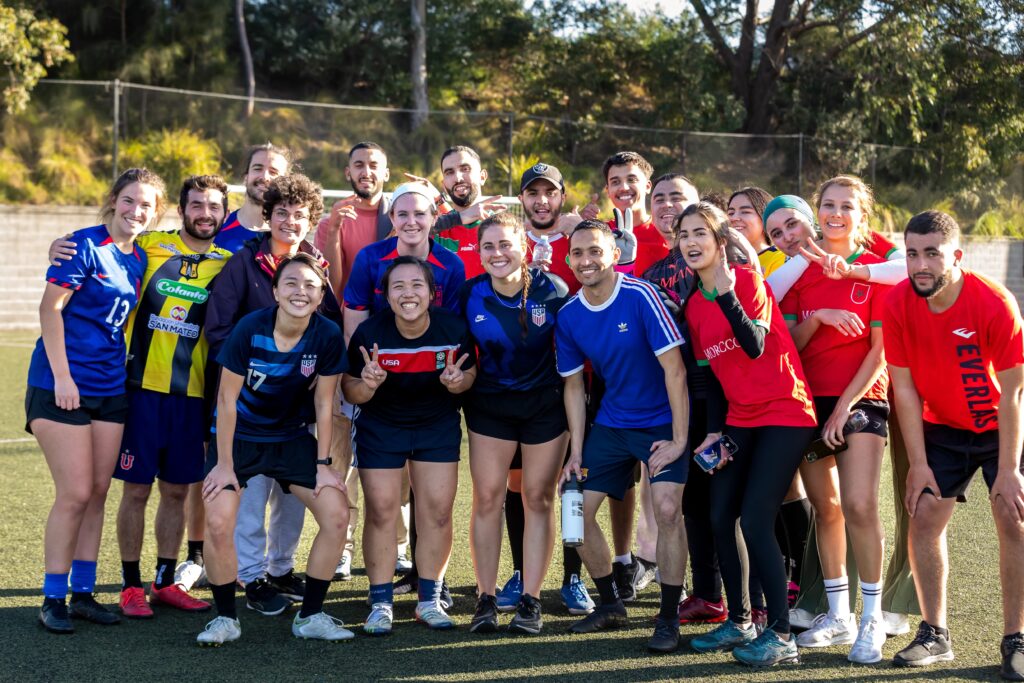Growing women’s football in Singapore and beyond
Everything changed for Puah Jing Wen and Stefanie Dana Oh with the 2019 Women’s World Cup. With 57,900 attending the final in Lyon, it was an awakening to the sheer potential of women’s football which made the lack of visibility for female footballers in Singapore, their home nation, all the more disappointing.
“We were watching the U.S. women’s national team because they were kind of the most popular back then and it was very insane for us to even imagine that people would fly miles just to watch the national teams. It just changed my entire world view of what women’s football could be,” Jing Wen said in an exclusive interview with the Sports Gazette.

After returning from France, they brought a determination to uplift Singaporean women’s football with them. This resulted in the creation of Soccer Girl Goals, a social media campaign advocating for women’s football.
“When we went back to Singapore, we were pretty inspired by it [the World Cup] and we wanted to do something more, especially in Asia, because I think even though Japan has won the World Cup before, the visibility just isn’t there,” Jing Wen explained.
But with organizations like theirs fighting for greater visibility of women’s football, what does the future hold for the sport in Singapore?
Introductions to the game
Limited visibility is one of many obstacles that aspiring female footballers must overcome on the Southeast Asian island. Sara Merican made it all the way to the national team, representing her country from 2021-22, but her journey was not without adversity.

“I think the difficult part is that there weren’t many people you could look up to at that time,” she said.
“The senior national team would only be assembled three months before a competition. And then the minute the competition finishes they disbanded it.
“So you didn’t even have anyone to look up because, you know, sometimes the national team didn’t even exist.”
Though the lack of role-models was disheartening, Sara was actively encouraged to pursue football by a uniquely supportive school.
“I think one thing that I never sort of realized until I stepped out of that school environment was that like equality was assumed. We would never have to compete for facilities or training or equipment,” she said.
The footballing experiences that followed at club level would prove a rude awakening.
“You’re like, oh, the men’s team has the physio, but we don’t get the physio? We have to pay for our jerseys or we have to fundraise to pay for our jerseys?” Sara said.
“We don’t get favorable training times because we have to train after the academy boys. We don’t get the best locations or the best fields compared to academy boys, you know.”
Nonetheless, Sara finds hope for the future when reflecting on her footballing journey.
“I think because my starting point was in such a like equal environment, I just felt like it’s actually possible [for things to improve],” she said.
“You don’t need to like, move mountains to make it happen. You just need the right people to be in the right places.”
Despite the challenges at the club level, Sara recognises she was one of the lucky ones when it came to her introduction to the game.
For Jing Wen, who represents Eastern Thunders in the Singapore Women’s National League, and Stefanie, a keen footballer too, social attitudes were more prohibitive.

“My family was never really supportive of me playing football. I had to hide my first pair of boots from my parents so they didn’t know I was playing football,” Jing Wen said.
While Sara’s school nurtured women’s football, Jing Wen and Stefanie couldn’t play organised football until they were 17 due to an institutional opposition rooted in gender norms.
“When my little group of girls that played football during recess were trying to campaign for us to start a football club, they were like, no, we’re not going to do it. We can have netball. You know, if you want to play that, there’s hockey, which you can play as well, but not football,” Jing Wen said.
For Stefanie, the idea that football was too ‘boyish’ was reinforced at home too.
“I was like maybe six, seven years old when we played a little tournament. I thought, oh, this is actually quite fun. And when I asked my parents to have a football, to play football, they said, ‘no, it’s too tomboy,’” she reflected.
Beauty standards present another obstacle for aspiring female footballers, in Singapore and beyond.
“When I went up to join my high school football team, I told my parents like, okay, I’m going to join football. My dad’s first response was, are you sure? Your thighs will get bigger,” Stefanie said.
Sara sees these cultural beauty standards holding back progress in women’s football at every level of the game – grassroots up through professional players face scrutiny. She said, “I feel like there’s still a very big emphasis on looks and all that for women, compared to ability.”
Building Soccer Girl Goals
Soccer Girl Goals was established in the hopes that these traditional views could be changed, but their celebration of Asian women’s football hasn’t been easy. They’ve received plenty of support, but social media abuse and trolling are also prevalent. For Jing Wen and Stefanie, these negative comments were disheartening at first.
“We took a lot of the comments personally initially, and we were quite upset about it because our project came from a very genuine angle. We really just wanted to help,” Jing Wen said.
In time, the duo learned to ignore the naysayers, whose negativity was outweighed by the positive reactions they received.
“We got messages coming in saying thanks so much for doing this. Sometimes it’s from parents also. So I think that’s the really positive part,” Jing Wen said.

The public support from parents is an encouraging sign that gender norms have changed. Whereas Jing Wen and Stefanie had to convince their parents to play, there is a growing number of parents who feel proud to see their daughters compete.
Sara witnessed this shift first-hand when she took on coaching duties for an under-15 girls’ team.
“Parents are a lot more involved now. Previously, you know, we ran against resistance with our parents playing the sport,” she said.
Success stories like that of Danelle Tan, now at Borussia Dortmund, offer inspiration to both players and parents alike.
“There are some more radical parents that are really supportive of their kids playing football,” Jing Wen explained.
“When their kids go to a really high level, they kind of inspire other parents to want to support their kids, to go to those levels as well.
“So we have one of our youngest players who is now in Dortmund, but that’s only because her parents have been so supportive throughout the entire journey.”
The growing visibility of the game will give inspiration to the next generation of Singaporean girls, but broader cultural shifts may be required both within Asia and beyond.
Stefanie said, “I think just playing any sports, you’ll be seen as kind of rough-and-tumble in that sense. Yeah. So I think it’s the Asian culture that kind of has to shift the mindset of how they look at girls playing sports in general.”
On a global level, Asian footballers must contend with misgivings about their athletic abilities. There is hope that these stereotypes can be discarded, though. Jing Wen and Stefanie take encouragement from a recent meeting with the head of academy for West Ham United Women, a WSL side with three Japanese players in their squad.
“He was saying that ultimately he realized that it is actually a misconception, for like the Asian body type to be a weakness,” said Jing Wen.